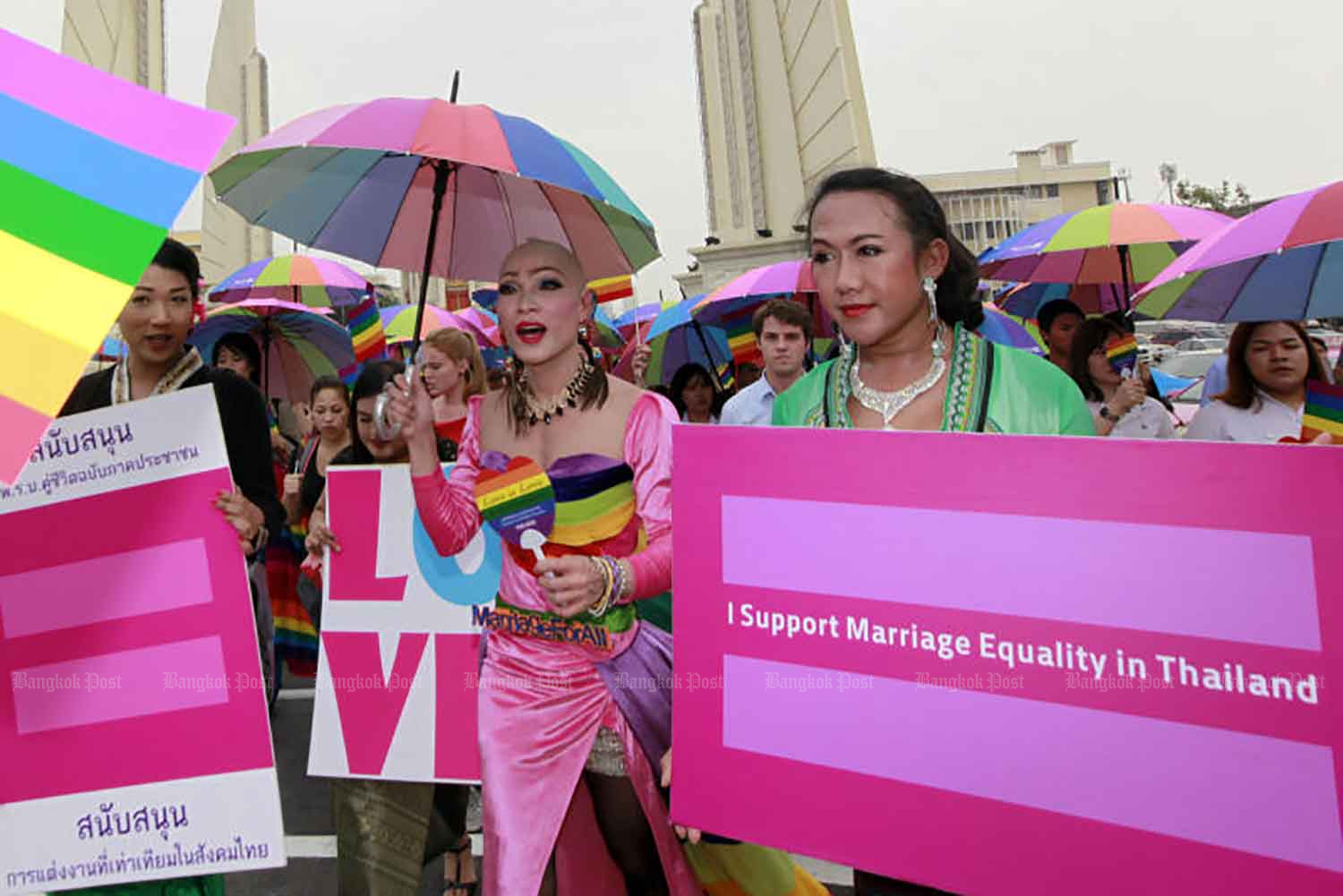
The Constitutional Court has postponed its ruling in a landmark LGBT marriage equality case from Tuesday to Dec 14.
The Foundation for Sexual Orientation and Gender Identity Rights and Just, better known as the FOR-SOGI organisation, announced the postponement at a press conference on Tuesday.
The court was acting on a petition calling for it to rule on whether Section 1448 of the Civil and Commercial Code contravenes the charter. The section currently only recognises marriage between a man and a woman, he said.
The FOR-SORGI lodged a complaint with the Central Juvenile and Family Court to determine whether the current Section 1448 of the Civil and Commercial Code is compliant with Section 27 of the 2017 constitution.
Sanya Eadjongdee, a lawyer representing the group, said the court announced the postponement without giving reasons.
He added there was no telling if a ruling would be handed down in December.
Mr Sanya explained revising Section 1448 and the draft bill to amend the Civil Partnership Act were two different issues.
"Revising the section is our main goal," he said. "By imposing this bill, it would make LGBTQ+ people become second-class citizens and having a family constitutes a fundamental right of being a human."
The Juvenile and Family Court acted more or less as a "postman" in submitting the constitutionality interpretation petition with the Constitutional Court at the group's request.
Mr Sanya said he viewed that the Juvenile and Family Court should act proactively on the matter as Section 1448 is thought to undermine the rights of people regardless of gender to marry and to start a family.
During the conference, he said if the Constitutional Court decided in the petition's favour, the ruling could be cited by the LGBTQ+ couples in compelling the marriage registrars to recognise their marriage.
"However, the registrars would find themselves in a difficult situation because there is no law at present that certifies a same-sex marriage," he said.
Mr Sanya indicated the constitutional ruling and the bill are part and parcel.
The lawmakers need to hurry up and amend the law or find a way to fill the legal void that prevents the recognition of same-sex marriage, he said.
If the Constitutional Court eventually finds Section 1448 contradicts the charter, it might make it necessary to invoke Section 77 of the constitution, he noted.
Section 77 calls for laws to be repealed or revised if they are obsolete or pose an impediment to people's livelihoods.
In the case of Section 1448, it falls in the latter category and should be modified accordingly.
"Section 1448 clearly poses an obstacle to the LGBTQ+ couples being granted legal, married status,'' he said.
The push for legalisation of same-sex marriage in Thailand has gained momentum since 2012 with a proposed amendment to Section 1448 of the Civil and Commercial Code at the forefront of the movement.